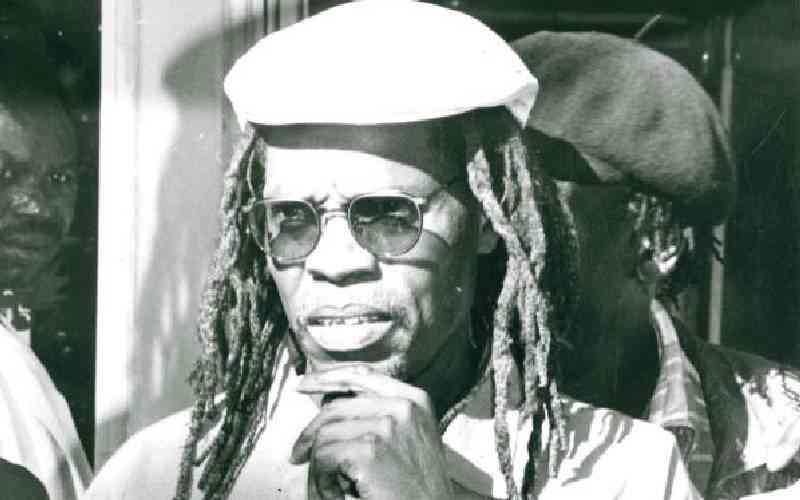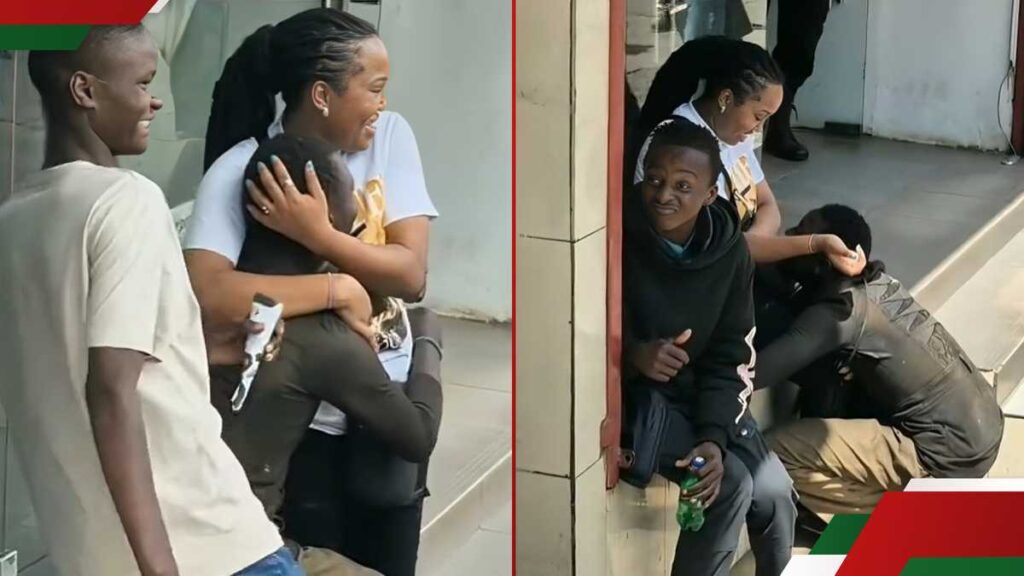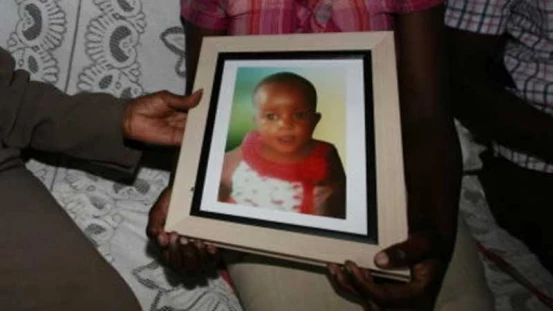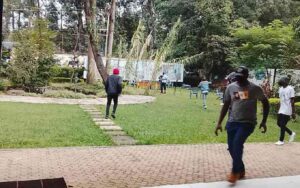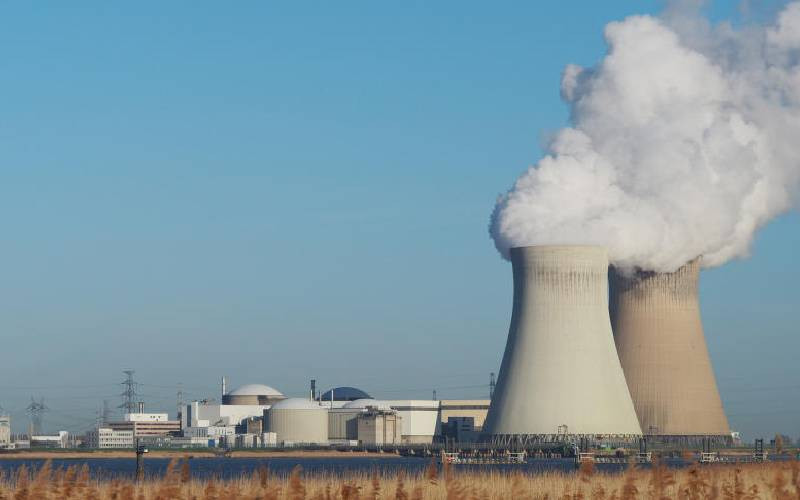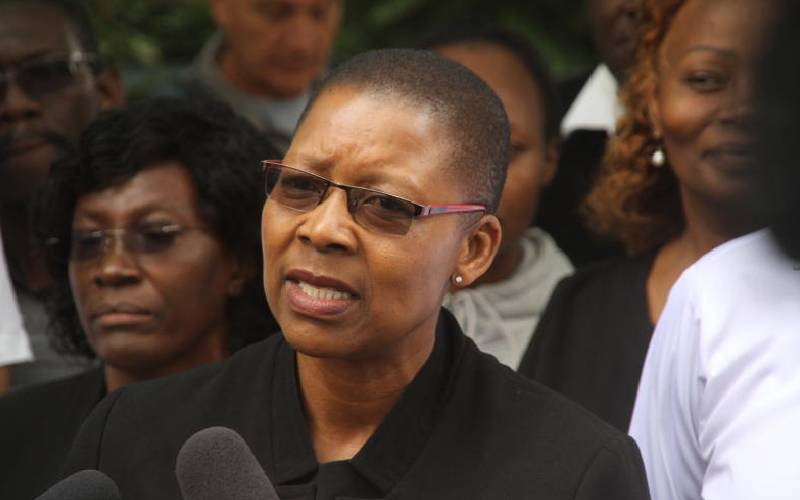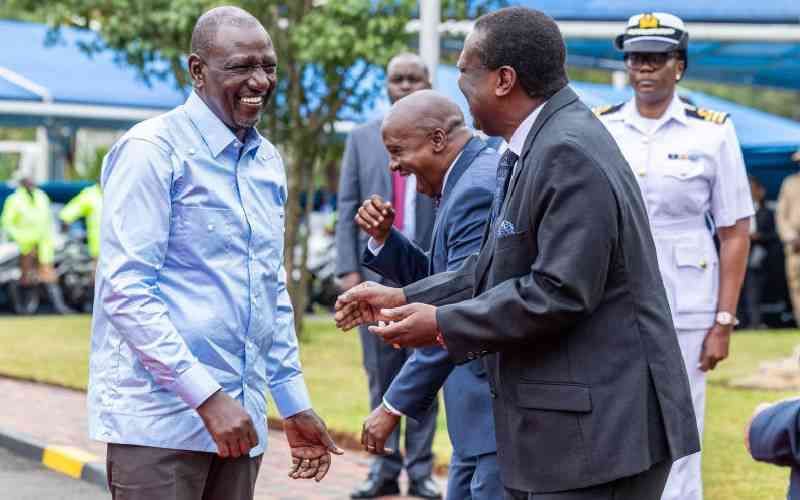Gen Z activists advocating for good governance in Kenya plan to hold marches on Monday to commemorate Saba Saba Day, reviving the spirit of the country’s second liberation struggle from the 1990s.
Former opposition leaders Kenneth Matiba and Charles Rubia initially called for a public rally on July 7, 1990, to pressure the oppressive Kanu regime to meet the people’s demands for a pluralistic system of governance.
This day became a launching pad for mass protests across the nation.
Government security forces attempted to disperse the gathering, but a large crowd still assembled at Kamukunji grounds in Nairobi.
The country had been under a single-party system since 1982 when Parliament amended the constitution to outlaw other political parties.
However, Matiba and Rubia were arrested by security forces and detained without trial a day before the scheduled meeting, which had been banned by the government.
Despite the crackdown, huge crowds surged through the streets of Nairobi, heading towards Kamukunji Grounds for the rally, only to be confronted by anti-riot police.
Other pro-democracy champions, including veteran politicians Jaramogi Oginga Odinga, Masinde Muliro and Martin Shikuku, insisted that the rally continue.
They were supported by a group of young leaders known as the Young Turks, which included lawyers Paul Muite, James Orengo and Gitobu Imanyara.
Unfortunately, all these leaders were arrested and tried in their respective home districts, leading to intensified protests in various regions.
Supporters rallied outside police stations and courts to express solidarity with the detained leaders.
The uprising sparked massive riots across major towns in the country, lasting four days and resulting in numerous deaths and nearly 1,000 arrests in various courts.
The first Saba Saba Day became a symbol of the second liberation struggle as anti-government leaders institutionalized it in their fight for multi-partyism and good governance.
Koigi wa Wamwere, a former Subukia MP and political detainee, stated that Saba Saba Day represented a watershed moment in the country’s liberation struggle, which culminated in the enactment of a new constitution in 2010.
Stay informed. Subscribe to our newsletter
Koigi noted that the spirit of those who fought for political and legal reforms now inspires Gen Z activists, who are eager to commemorate the day and promote their cause for good governance.
“The Gen Z struggle for good governance reflects the efforts of the Young Turks in the 1990s, which led to the repeal of oppressive laws and the introduction of multi-party politics in the country,” said Koigi.
He emphasized that Saba Saba Day serves as a reminder that no oppressive force can withstand the people’s determination to improve their lives and secure freedom.
Koigi advised Gen Z activists to evaluate the liberation struggle critically, identifying vital lessons and successes that could inform their push for change.
After the Saba Saba riots, leaders from different generations united to rally public support against the KANU regime.
Working together
He cautioned Gen Z leaders not to fall victim to government strategies aimed at dividing them and weakening their collective strength.
“The secret to success in any struggle lies in leaders embracing all like-minded forces to enhance their impact. Opponents capitalize on divisions,” he said.
In addition, a former MP for Molo, Njenga Mungai, who was an ally of Matiba during the second liberation, stated that the Saba Saba movement laid the groundwork for the country’s liberation.
Mungai remarked that it initially seemed impossible to compel the KANU regime to heed citizens’ demands for change, but Kenyans displayed exceptional resilience and unity, ultimately forcing the government to yield.
He acknowledged that struggles can be costly, leading to the loss of innocent lives and destruction of property. Mungai called on the government to engage with Gen Z leaders to minimize this loss.
Mungai emphasized that the Saba Saba movement has inspired Gen Zs in their quest for meaningful government reforms.
“I urge those participating in the demonstration to exhibit patriotism by listening to the grievances expressed by Gen Zs. We should not push the country to the brink before the government addresses the people’s demands,” Mungai stated.
He further noted, “Struggles are a constant in any human society. However, based on my experience, it is vital for leaders across the political spectrum to reduce hostilities and rivalry, opting instead for dialogue to resolve conflicts.”
Another former MP, Mwangi Gichuki, who actively participated in the Saba Saba protests, stated that the movement was fueled by a demand for good governance and its restoration in the country.
Gichuki, who was elected as the MP for Ndaragwa constituency following the reintroduction of multi-party democracy, compared the Gen Z movement to the Saba Saba movement, asserting that both aim to reform repressive systems.
By commemorating Saba Saba Day, Gichuki believes that Gen Zs can draw inspiration from the ideals and values that motivated the champions of the second liberation, which paved the way for political and legal reforms in the nation.
“Democracy thrives on the eternal vigilance of its citizens, and energetic young people hold the greatest responsibility for advocating socio-economic reforms in the country,” Gichuki added.
He urged the government to foster a culture of listening to the concerns of its citizens rather than deploying armed police to engage in street confrontations with protesters.
“Clashes between police and protesters disrupt economic activities and other socio-economic functions, highlighting the need for dialogue to resolve issues,” Gichuki noted.
“Leaders who fought for reforms during the first and second liberations were patriots committed to collaborating with Kenyans from all social and ethnic backgrounds,” Gichuki added.
Human rights defender David Kuria, also known as Western, stated that the Saba Saba protests inspired confidence among Kenyans, demonstrating that they could compel the KANU regime to implement changes.
Kuria, a founding member of the Release Political Prisoners (RPP) pressure group, claimed that the Saba Saba protests marked a new political era that ultimately led to the enactment of the 2010 Constitution.








